Focus
Your Present Location: HOME> Focus-

Wang Wen: Hong Kong should be wary of US interference
There is another thing I cannot understand. It has been 22 years since Hong Kong returned to the motherland. Why do so many youngsters still not recognize their motherland? Why don't they respect the rule of law and social order? Why do they prefer violence? As one of the most competitive cities in the world, Hong Kong's educational and social elites have to rethink these questions. However, just as the Chinese word weiji, literally crisis, is a combination of the words "danger" and "opportunity," the social crisis of Hong Kong in 2019 is also an opportunity for the city to seek change and take off again.
2019-10-29 -
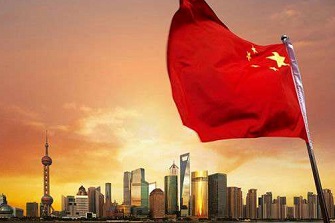
He Weiwen: Will China’s GDP Growth Slip Below 6%?
The latest official data shows that the Chinese economy slowed further in the third quarter this year, with its GDP growth rate of 6.0 percent, which is down from 6.2 percent in Q2 and 6.4 percent in Q1. The first three quarters combined had a rate of 6.2 percent, down from 6.3 percent in the first half of the year. The past seven quarters since Q1 2018 have seen uniform economic slowing, with the quarterly GDP growth rate of 6.8 percent in Q1 2018 dropping to 6.7, 6.5, 6.4, 6.4, 6.2 and 6.0 for each subsequent quarter, respectively. If this trend continues, Q4 2019 GDP growth seems poised to slip below 6.0 percent.
2019-10-28 -
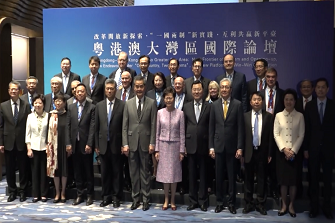
City needs reform strategy to overcome difficulties
Hong Kong needs its own reform strategy to address the city's deep-rooted social issues, to enhance economic competitiveness and strengthen its role in the Guangdong-Hong Kong-Macao Greater Bay Area, experts say. Hong Kong is a gateway to China and therefore it will have the advantage of being the contact with the Chinese mainland market, said Ross, who is also a senior fellow at the Chongyang Institute for Financial Studies at Renmin University of China
2019-10-28 -
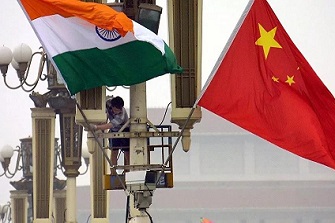
Lin Minwang: China and India, Looking Into the Future
Chinese President Xi Jinping and Indian Prime Minister Narendra Modi held their second informal meeting on October 11-12 in the southern Indian city of Chennai. During the meeting, Xi said China and India, as ancient civilizations with several thousand years of history, have carried on exchanges and mutual learning until the present. The two countries’ ancestors overcame various obstacles to carry out extensive exchanges and promote the development of literature, art, philosophy and religion, which have greatly benefited both sides.
2019-10-25 -
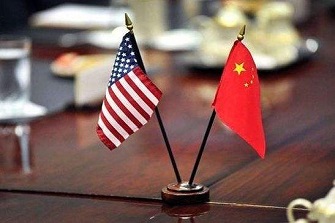
Wang Wen& Liu Ying: Ten areas where China and US need to focus
Substantial progress has been made in the latest round of China-US trade consultations on October 11. The volatile trade dispute which has taken global economic circles by storm over the past year and a half hasn't led to the collapse of the two countries' trading relationship in at least 10 fields. Cooperation in ties hasn't evaporated but rather seems to be strengthening. Enhancing cooperation in these 10 areas will not only be a key to stabilize ties but also an effective way to reverse global pessimism.
2019-10-25 -

Liu Zhiqin: Hong Kong-Zhuhai-Macao Bridge—— A bridge towards common prosperity
The Hong Kong-Zhuhai-Macao Bridge is a very spectacular mega project. I can't help but marvel at the ingenuity and incredible fortitude of Chinese tech experts and the engineering construction teams who have created the world miracle. The completion of the Bridge is of great significance to the construction and economic development of the Greater Bay Area, as demonstrated in the following three aspects. The bridge has greatly enhanced the connectivity between Hong Kong, Zhuhai and Macao, underpinning the development of the Greater Bay Area.
2019-10-25 -
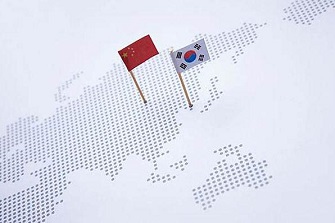
Ding Gang: What affects everlasting peace in East Asia?
I attended the 7th China-ROK Public Diplomacy Forum held from October 16 to 18 in Incheon, South Korea. The theme of the first session focused on peace and cooperation in Northeast Asia. During the tea break, a member of the South Korean audience walked up to me and asked very inquisitively: "Can you [China] defeat the US?" What he was referring to is the trade war. I replied that first it is not an issue about victory or defeat. Second, China is not trying to defeat the US, which is not capable of vanquishing China.
2019-10-24 -
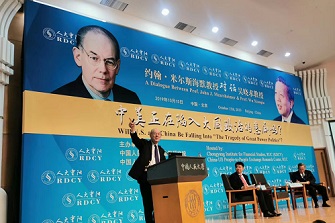
Can tragedy of great power politics be avoided?
At "A dialogue between Prof. John J. Mearsheimer and Prof. Wu Xiaoqiu: Will the US and China be falling into 'the tragedy of great power politics?'" organized by Chongyang Institute for Financial Studies, Renmin University of China, on October 15, Mearsheimer and Wu exchanged insights on China's rise, China-US relations with the audience.
2019-10-23 -
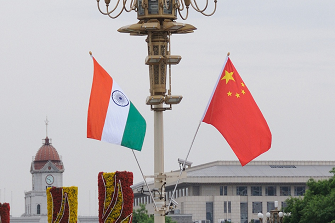
Grudges behind India's academic restrictions against China
India's new restrictions on academic exchanges with China immediately triggered widespread speculation. Highly vigilant of China's rapid rise, the Indian government has been known for its strict scrutiny of collaborative programs involving Beijing. But still, the new regulations – all Indian educational institutes need a nod from the Ministries of Home and External Affairs before seeking tie-ups with Chinese counterparts – is jaw-dropping for the academic circle.
2019-10-22 -
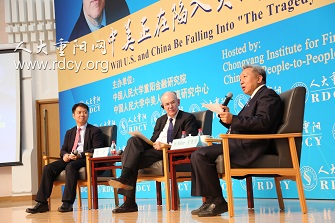
Wang Wen: Finance trumps military power in global politics
We think tank scholars often summarize the lessons of the US decline. A major lesson is that the successful great power of the 21st century must rely not on squeezing others but on its own governance. If in the future, China gets an upper hand on the US in infrastructure, 5G, social security, quality of life, technological innovation and education, Beijing will emerge the obvious winner. But this can't be achieved by tragedies precipitated by military or other conflicts. Hence we need to avoid conflict with the US.
2019-10-22 -
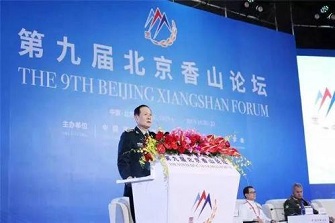
Regional security architecture should emphasize inclusiveness
The 9th Beijing Xiangshan Forum kicked off in Beijing on Monday. Chinese State Councilor and Minister of National Defense Wei Fenghe delivered a keynote speech at the opening ceremony. Wei clarified China's position on a variety of key issues. Minister Wei pointed out that regional affairs should be handled by regional countries. China is gaining an increasing influence in the Asia-Pacific region and has an increasing problem-solving capability regarding regional affairs, including security issues. China believes that regional affairs must be solved by regional members through cooperation and coordination.
2019-10-22 -
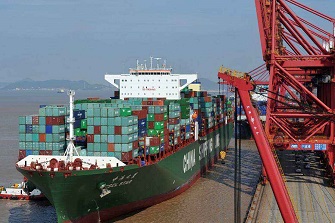
He Weiwen: America is Yielding China Trade to ASEAN and EU
Official Chinese customs data for H1 2019 shows that the U.S. was replaced by ASEAN as China’s second largest trading partner. The predominance of Asia and Europe in China’s global trade pattern does not mean that China neglects trade with the U.S. On the contrary, China attaches great importance to a strong, stable, and sustainable trade relationship with the U.S. The early conclusion of an equal and mutually beneficial trade deal will certainly be good for the U.S., for China, and for the whole world.
2019-10-21 -
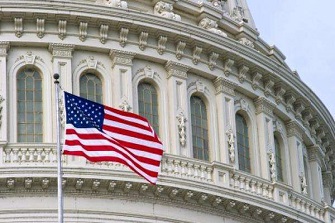
William Jones: Is mob rule taking over in Hong Kong or in the U.S. Congress?
On October 15, the U.S. House of Representatives passed on a voice vote, the Hong Kong Democracy and Human Rights Act. This legislation would give the right to the U.S. Congress to determine whether or not Hong Kong, a legitimate part of China, has maintained the autonomy granted to it by China's central government under the "One country, Two systems" principle. If they judge that it hasn't, the U.S. will reserve the right to withdraw the status of Hong Kong as a free market.
2019-10-18 -
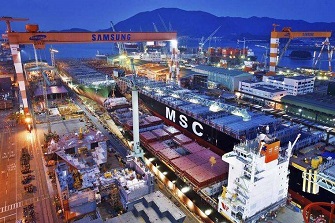
Ding Gang: China, South Korea cross paths in industry
South Korean tech giant Samsung reportedly shut down its last mobile phone factory in China in early October, signaling the chaebol's complete withdrawal from the burgeoning smartphone industry in the world's second-largest economy. This is an obvious result of industrial competition between China and South Korea, prompting the warning that intensifying competition between the two countries' industries can't be ignored.
2019-10-17 -
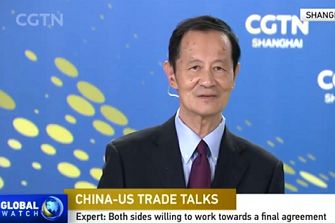
Expert on 'substantial progress' of China-U.S. trade talks
Negotiators say "substantial progress" has been made after two days of trade talks between China and the United States. They discussed agriculture, intellectual property and expanding trade and technology transfers. Chinese President Xi Jinping said a healthy and steady relationship is good for both countries and the world. And U.S. President Donald Trump gave "tremendous credit" to China for the progress in talks. The two sides also agreed to work towards a final agreement.
2019-10-16 -

Ma Jun: Chinese green finance solutions prove their worth
Shifting to new environmentally friendly growth drivers has helped set the country on the path to sustainable growth. China has become one of the biggest economies in the world, but the economy is under pressure to adopt a new development model given that environmental issues such as air, water and soil pollution can hit sustainable development. A business-as-usual approach, which involves high energy consumption and high carbon emissions, has become untenable in the wake of global warming. Hence, the transition toward a low-carbon future is inevitable for a responsible stakeholder such as China.
2019-10-16 -
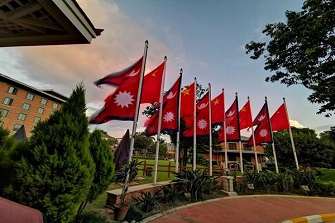
Strengthened China-Nepal ties could help Nepal go further
2019-10-15 -
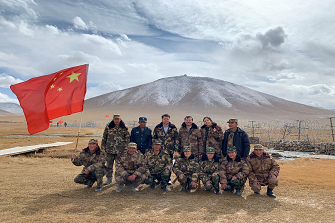
Wang Wen: Xinjiang deserves respect from the world
A man called Muztagata, so goes the tale, always went to distant places to fight enemies, and when he finally came home, he found his wife and nine children, who had been waiting for him to come back, had turned into icebergs. Then Muztagata himself turned into a high mountain to accompany his family and safeguard what is now Bulungkol township, Akto county in Kizilsu Kirgiz Autonomous Prefecture, the westernmost part of China. At the foot of Mount Muztagata, Li Wenjuan, chief of the Communist Party of China (CPC) local township committee in Bulungkol, told me the tale about love, home and country. But to me, the story of Li herself is more touching. The petite 29-year-old woman is as powerful as Muztagata.
2019-10-15 -
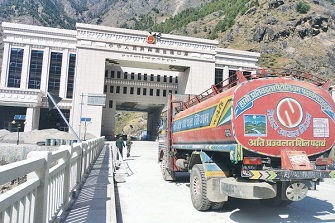
Long Xingchun: Xi’s India and Nepal visits bring trilateral ties in focus
Chinese President Xi Jinping's informal meeting with Indian Prime Minister Narendra Modi has made waves with bilateral ties getting a fillip amid a new warmth pervading the relationship. Xi's ensuing visit to India's northern neighbor Nepal is the first by a Chinese president in 23 years and has lifted the bilateral relations to a new level. Since the two countries established diplomatic ties in 1955, China and Nepal have maintained good relations.
2019-10-14 -

William Jones: Global competitiveness report a wake-up call on the economy
It was a rather gloomy picture presented in this year's Global Competitiveness Report issued by the World Economic Forum. The report is said to be an indicator of how close an economy is to the "frontier" of competitiveness in the various areas of the economy. While the definition of "competitiveness" is somewhat elusive, and perhaps rather subjective, it does include as a basic element the notion of productivity increases, and in that sense has a real basis in reality.
2019-10-11
























































































 京公网安备 11010802037854号
京公网安备 11010802037854号





